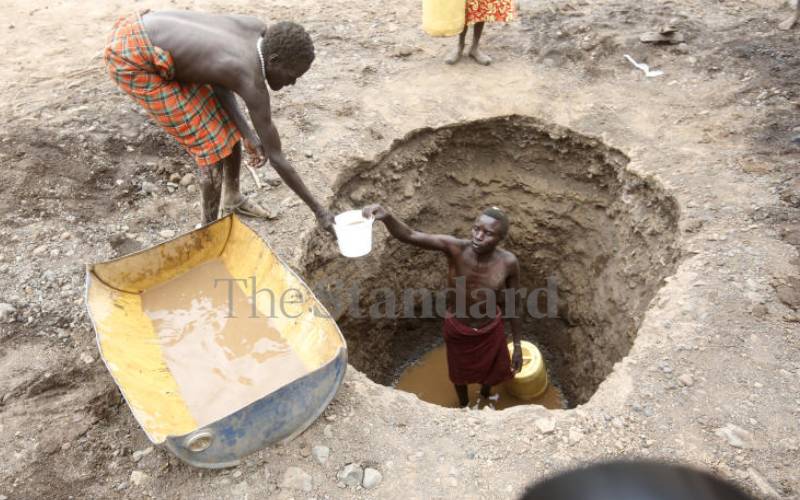×
The Standard e-Paper
Join Thousands Daily

Tiaty residents fetching water from a well along Akwitchatis River, March 17, 2022. [Kipsang Joseph, Standard]
Thousands have lived without love, not one without water, according to American poet Wystan Hugh Auden.